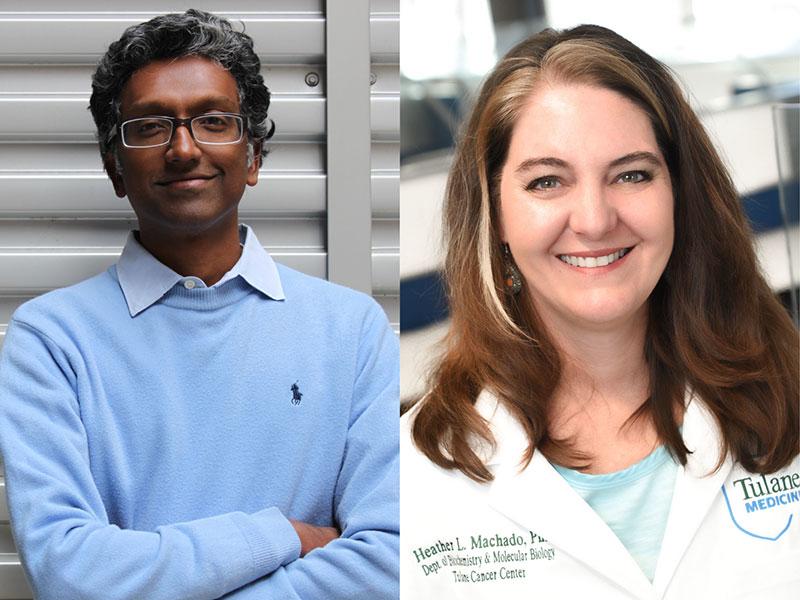Tulane to launch science communication program to help tackle global issues
It’s one thing to understand science, and another thing to communicate it — especially to policymakers, funders and even skeptics.
That’s one of the goals of the new Science Policy and Communication Graduate Fellows Program at Tulane University, which will launch in the fall of 2024. An initiative of the Murphy Institute’s Center for Public Policy Research, the graduate-level program is specifically for PhD students entering their second or third year of study.
Chemistry professor Janan Jayawickramarajah, associate dean for research, faculty affairs and PhD programs in the Tulane School of Science and Engineering, said there’s a critical need in the U.S. for scientists to understand how politics and the economy can drive society’s view on science, and communication is a key part of that.
“My hope is that the PhD students who complete the fellowship program will not only become excellent laboratory researchers solving critical societal problems, but will also be equipped with pertinent knowledge and skills to blossom into leaders advocating for and countering misperceptions of science, engineering and medicine,” Jayawickramarajah said.
Jayawickramarajah will lead the program with Heather Machado, associate professor of biochemistry and molecular biology and assistant dean for the biomedical sciences graduate program at the Tulane School of Medicine.
“We have always prepared our students to be path-breaking researchers and creative teachers, but society requires that some of these graduates emerge as effective communicators and advocates in the public sphere,” said Robin Forman, provost and senior vice president for academic affairs. “With this exciting new program, we are taking an active role in giving our students the tools they need to meaningfully engage with policymakers and others who need to know science in order to make better-informed decisions in their professional and personal lives.”
To be eligible, PhD students entering their second or third year must have already shown excellence in research and demonstrated strong interest in the political economy of science and engineering, especially in terms of policy and communication. Political economy is a branch of study that focuses on the interrelationships of individuals, governments and public policy and how economic theories work in the real world.
During the fellowship, students will be expected to keep up with their research while also taking an additional course focusing on political economy, innovation or research and development. They will also be required to attend an American Association for the Advancement of Science workshop that focuses on science communication. One such workshop involves meeting with members of Congress and the Louisiana Legislature to discuss science policy and to gain an understanding of the appropriations process.
Finally, students will be required to spend two semesters on a project related to community outreach, science policy engagement or science and the economy. The fellowship will culminate with a one-day symposium, where students will present their work to academicians, national leaders and policy makers.
Jayawickramarajah said programs such as this fellowship are needed more than ever to tackle the biggest problems facing the world, including climate change, water shortage and viral pandemics.
“And for national competitiveness of the U.S.,” he said, “it is of utmost importance for scientists to understand the political economy issues intimately and then be proactive in countering and disarming detrimental narratives.”
For application information and other details, visit the program website.

